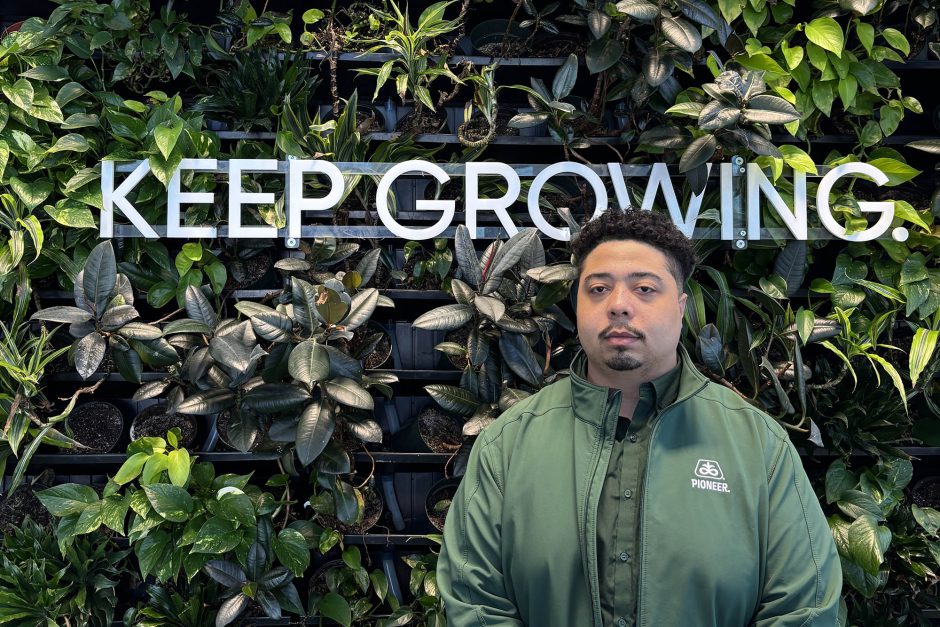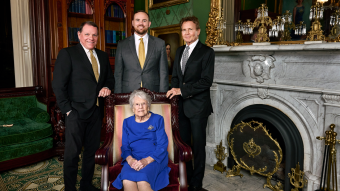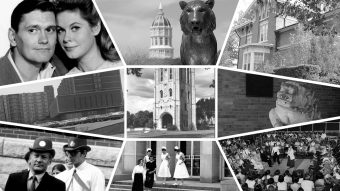
April 2, 2025
Contact: Sara Diedrich, diedrichs@missouri.edu
Isaiah Massey embraced every opportunity at the University of Missouri, using his time on campus to explore and refine his career path. Initially, he set his sights on a degree in agricultural education. However, after spending two summers interning as an elementary school agriculture educator, he realized that teaching wasn’t his passion.
That’s when Massey shifted his focus to agriculture sales in crop protection and ultimately discovered his true calling — commercial sales.
Massey encourages students to pursue internships each year of college, using them as a tool for hands-on learning and career exploration. He also advises being strategic when selecting courses.
“Don’t take classes just to check a box,” he said. “Choose courses that not only fulfill graduation requirements but also provide real value in your professional life. Mizzou offers an incredible variety of classes that can do both — take advantage of them.”
Read on for a Q&A with Massey:
What made you choose Mizzou?
I chose Mizzou for its agriculture program. As an active member of FFA in high school, Mizzou quickly became a second home to me. While attending state conventions on campus, I saw the deep commitment of agriculture professors and staff to student success, programs and the future of Missouri FFA. I recognized Mizzou’s dedication to innovation in the agricultural space.
Were you involved in any clubs or activities on campus? If so, what were they, and how did they impact your experience?
I was a member of Omega Psi Phi Fraternity Inc.; president of the National Pan-Hellenic Council; president of Minorities in Agriculture, Natural Resources and Related Sciences; founder of the urban garden at the Gaines/Oldham Black Culture Center; a mentor with the McNair Scholars Program; and a recipient of Mizzou ’39 award.
Tell us about your career and what you do as a sales support specialist.
I work as a sales support specialist in the early career development program for Corteva Agriscience, which is headquartered in Johnston, Iowa. In my role, I manage two territories in Nebraska, supporting 24 Pioneer sales representatives and two Pioneer territory managers to ensure the seamless delivery of Pioneer seed. I act as a problem solver for our sales team, assisting with key operational tasks such as processing and fulfilling seed invoices, coordinating truck routes for timely deliveries, facilitating farmer loans and payments, and overseeing the annual payout of sales rep commissions. As part of the early career development program, I’ve had the opportunity to enhance my leadership skills through high-level training, including Dale Carnegie’s High Impact Presentation course, Agronomy Essentials, and preparation for my Certified Crop Advisor certification.
How did Mizzou help you achieve your career goals?
I reached my career goals because the Mizzou College of Agriculture, Food and Natural Resources (CAFNR) provides students with real-world experience and hands-on learning opportunities that relate directly to post-graduation life. CAFNR's courses attract industry professionals who share real-world insights and experiences, providing students with valuable networking opportunities and practical knowledge to prepare them for successful careers in agriculture.
What advice would you give to students pursuing or considering a degree in agriculture at Mizzou?
Internships, internships, internships — and don’t wait until your junior or senior year. I recommend securing a summer internship every year you’re in college. I started college as an agricultural education major, and for my first two summers, I interned as an elementary school agriculture educator. While I loved the internship, I quickly realized that teaching wasn’t for me. For my final two summers, I shifted to agriculture sales in crop protection and discovered that I truly enjoy commercial sales and the corporate world. The key takeaway? Find what works for you, and don’t let yourself be the obstacle to getting there. Most importantly, do not be too broad or vague about what you want from your career. The more focused you are, the better your chances of finding the right path.
Be intentional. Know what you want — or at least the type of work you can see yourself doing. Find a mentor who’s already in that role and learn the exact steps needed to get as close to it as possible.



